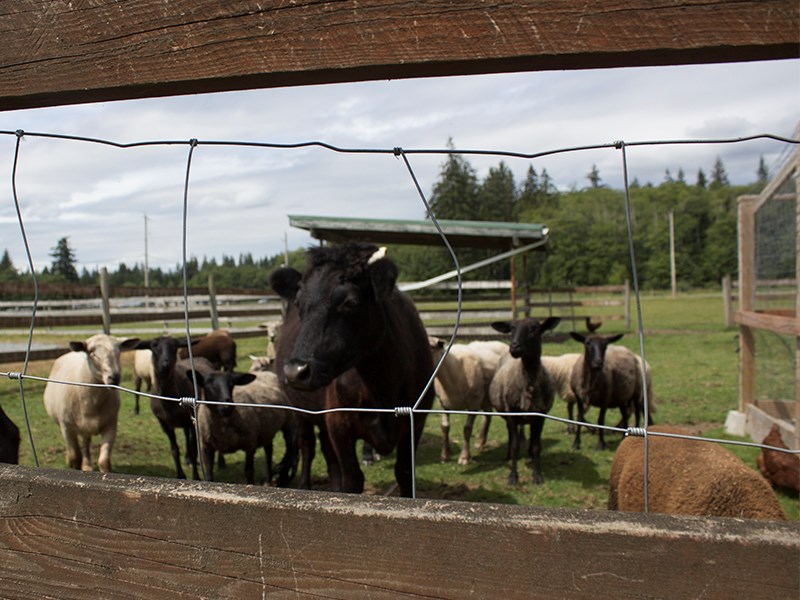A farming concept designed to assist people interested in learning the art and business of commercial agriculture has been shelved after Powell River farming groups said they are not in favour.
City of Powell River manager of economic development Scott Randolph brought the proposed concept forward to council more than six months ago, saying it could play a role in helping to improve the region’s economy and food security. The city applied to the province for grant funding to start the program.
At the Tuesday, November 29, committee of the whole meeting, councillor Russell Brewer revealed that staff has since withdrawn that grant application and the project has been put on hold indefinitely.
“It’s somewhat unfortunate,” said Brewer to the committee.
The committee received letters from Powell River Farmers’ Institute president Alan Rebane and Powell River and District Agricultural Association president Gary de Casmaker advising council that both farming groups did not support or endorse development of the incubator farm.
In his letter, Rebane informed the city that the group feels there is much “misinformation” regarding food security and production of agricultural goods.
“We strongly believe the City of Powell River could direct its funds in more productive ways,” wrote Rebane.
The city had been looking at facilitating an incubator farm project between a number of partners, including Vancouver Island University (VIU) and School District 47, on land between the previously proposed location of Sino Bright School and Millennium Park.
VIU Powell River campus administrator Greg Cran said after the meeting that his school’s involvement would have been to provide a broad education opportunity to teach farming skills and promote greater local food production.
“These are skills, not only for students, but for others, including vulnerable groups, wanting to learn how to access and better manage their own food security needs,” said Cran after the meeting. “With access to agricultural land limited due to cost and other factors, there is no opportunity to train and educate the next generation of farmers.”
Mayor Dave Formosa told the committee the city had no intention of running the farm itself.
“What we were doing was making land we have available for folks who want to learn their hand at farming and applying for a grant to get resources to help people who want to learn how to farm,” said Formosa. “I understood it to be a project to give young farmers a leg up, not that we were going to be getting into the farming business.”
A 2015 community food-system assessment commissioned by the city, Powell River Regional District and Vancouver Coastal Health reported, as one of its key findings, that while much of the region’s land is not suitable for large-scale agriculture, there is “capacity for smaller-scale production and increased interest among new farmers in growing food.”
“New farmers need access to affordable, suitably sized land parcels and help with startup costs to make food production viable,” the assessment stated.
Incubator farms are based around the idea that land ownership is one of the greatest challenges for would-be farmers. An incubator farm, in a fashion similar to the more traditional concept of a business incubator, provides a small parcel of arable land along with instruction and mentorship in order to create a viable agricultural business.
Funky Beets Farm owner Rob Gilchrist made a presentation and told the committee that local small-scale farmers face a number of obstacles in the business, including limited distribution ability, struggles to find adequate irrigation water and low local food literacy in the region.
“It’s easy to stand out in front of Ecossentials and ask people if they support local food,” said Gilchrist during his presentation. “Everyone is going to say yes, but at the end of the day local food is minimally supported here; that needs to change.”
He added that incubator farms are not the answer and the city should focus on creating agricultural land-use plans, farm trusts and other practices “that will keep the area’s farmland in production and out of the hands of development and non-agricultural usage.”
An incubator farm would make it harder for the farmers already trying to make a go, he said.
“An incubator-style project would draw more agrarians into the region and add competition to the farmers who are already here and are struggling to find distribution,” said Gilchrist.
After the meeting, Randolph confirmed that his office has withdrawn the grant application.
“We’ve shelved the project because we didn’t feel it was worth getting into a fight over,” he said. “We look forward to sitting down with the farming associations in the new year and talking about how we can work with them.”



